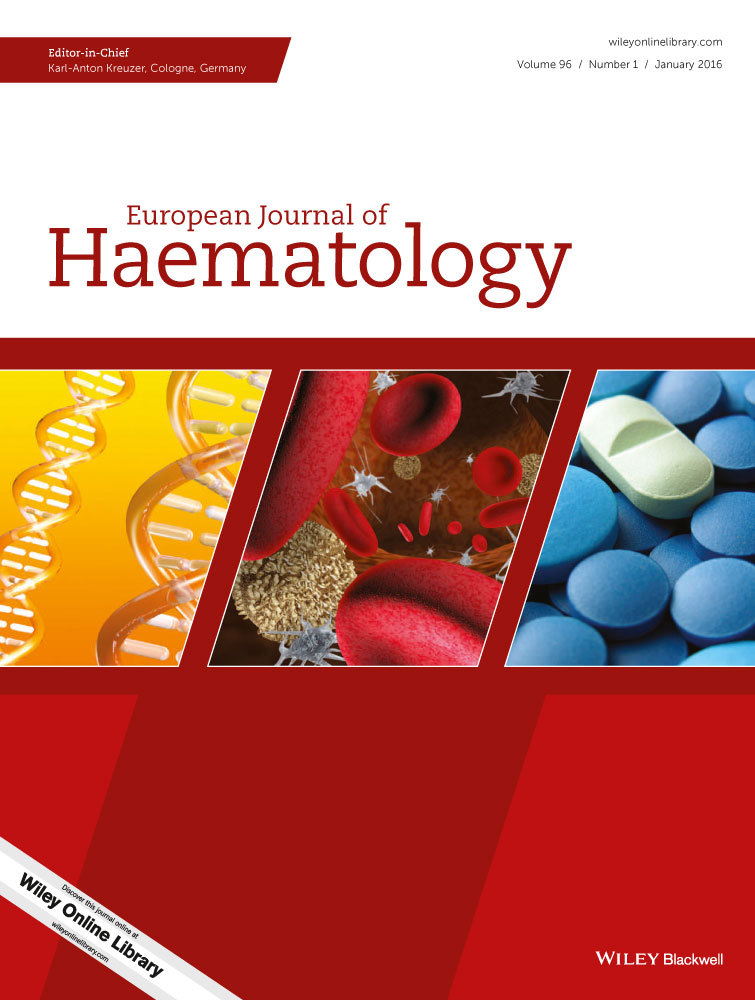Unavailability of thymidine kinase does not preclude the use of German comprehensive prognostic index: results of an external validation analysis in early chronic lymphocytic leukemia and comparison with MD Anderson Cancer Center model
Abstract
A comprehensive prognostic index that includes clinical (i.e., age, sex, ECOG performance status), serum (i.e., ß2-microglobulin, thymidine kinase [TK]), and molecular (i.e., IGVH mutational status, del 17p, del 11q) markers developed by the German CLL Study Group (GCLLSG) was externally validated in a prospective, community-based cohort consisting of 338 patients with early chronic lymphocytic leukemia (CLL) using as endpoint the time to first treatment (TTFT). Because serum TK was not available, a slightly modified version of the model based on seven instead of eight prognostic variables was used. By German index, 62.9% of patients were scored as having low-risk CLL (score 0–2), whereas 37.1% had intermediate-risk CLL (score 3–5). This stratification translated into a significant difference in the TTFT [HR = 4.21; 95% C.I. (2.71–6.53); P < 0.0001]. Also the 2007 MD Anderson Cancer Center (MDACC) score, barely based on traditional clinical parameters, showed comparable reliability [HR = 2.73; 95% C.I. (1.79–4.17); P < 0.0001]. A comparative performance assessment between the two models revealed that prediction of the TTFT was more accurate with German score. The c-statistic of the MDACC model was 0.65 (range, 0.53–0.78) a level below that of the German index [0.71 (range, 0.60–0.82)] and below the accepted 0.7 threshold necessary to have value at the individual patient level. Results of this external comparative validation analysis strongly support the German score as the benchmark for comparison of any novel prognostic scheme aimed at evaluating the TTFT in patients with early CLL even when a modified version which does not include TK is utilized.




